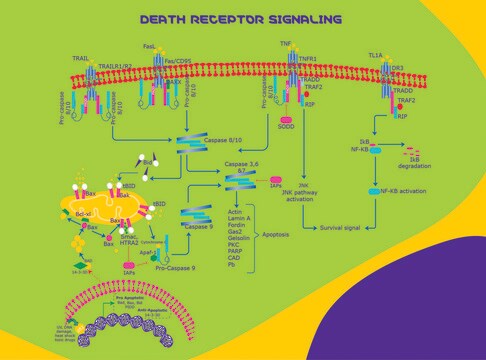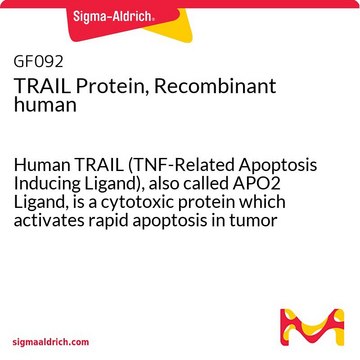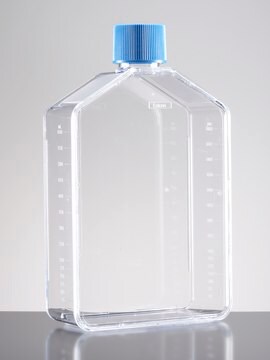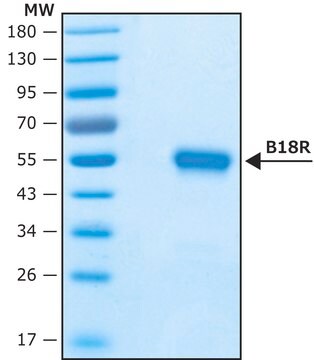SRP6238
TRAIL murine
recombinant, expressed in E. coli, ≥95% (SDS-PAGE)
Synonyme(s) :
Apo2 Ligand, TL2, TNF-related apoptosis-inducing Ligand, TNFSF10
About This Item
Produits recommandés
Source biologique
rat
Produit recombinant
expressed in E. coli
Essai
≥95% (SDS-PAGE)
Forme
lyophilized powder
Poids mol.
20 kDa
Conditionnement
pkg of 10 μg
pkg of 50 μg
Impuretés
<1 EU/μg endotoxin (LAL test)
Numéro d'accès UniProt
Conditions d'expédition
wet ice
Température de stockage
−20°C
Informations sur le gène
mouse ... TRAIL(22035)
Description générale
Forme physique
Reconstitution
Code de la classe de stockage
11 - Combustible Solids
Classe de danger pour l'eau (WGK)
WGK 1
Point d'éclair (°F)
Not applicable
Point d'éclair (°C)
Not applicable
Faites votre choix parmi les versions les plus récentes :
Certificats d'analyse (COA)
Désolés, nous n'avons pas de COA pour ce produit disponible en ligne pour le moment.
Si vous avez besoin d'assistance, veuillez contacter Service Clients
Déjà en possession de ce produit ?
Retrouvez la documentation relative aux produits que vous avez récemment achetés dans la Bibliothèque de documents.
Notre équipe de scientifiques dispose d'une expérience dans tous les secteurs de la recherche, notamment en sciences de la vie, science des matériaux, synthèse chimique, chromatographie, analyse et dans de nombreux autres domaines..
Contacter notre Service technique







